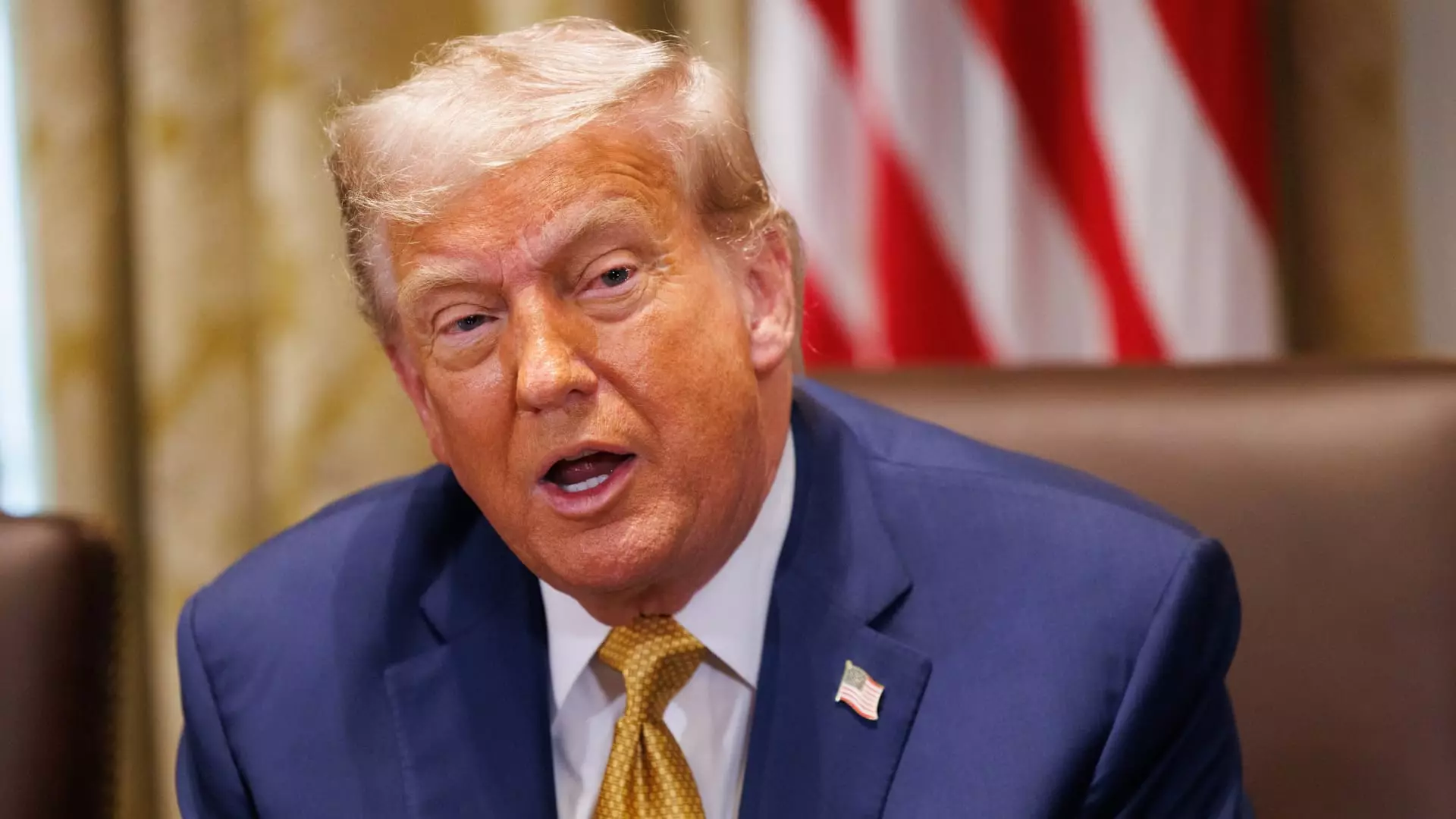Amid the ebb and flow of U.S. political rhetoric, President Donald Trump’s latest threat to impose up to 200% tariffs on imported pharmaceuticals epitomizes a simplistic approach to what is inherently a complex problem. The core assumption appears to be that high tariffs will catalyze domestic manufacturing, thereby boosting national security and economic resilience. However, this perspective overlooks the intrinsic intricacies of the pharmaceutical supply chain, the global nature of research and development, and the unintended consequences that such protectionist policies could unleash upon the very patients they purport to serve.
Rather than fostering innovation or ensuring reliable drug supplies, artificial barriers like tariffs risk erecting obstacles that will, over time, stifle competition, inflate costs, and diminish U.S. leadership in biotech innovation. It’s a dangerous myth to believe that tariffs alone can heal the fractures in this vital industry. If anything, they threaten to deepen existing issues by discouraging investment and disrupting careful global collaborations that are essential for breakthroughs in medicine.
Trade Policies and Their Hidden Costs
The administration’s fluctuating stance on pharmaceutical tariffs underscores a fundamental problem: the reliance on protectionist measures as a quick fix. Announcing up to 200% tariffs might appeal to nationalist rhetoric, but it is also a gamble with serious repercussions. Higher costs for medicines could result in diminished access for American consumers, especially those in vulnerable populations who already struggle with affordability. These tariffs could also send shockwaves through the investment landscape, discouraging pharmaceutical firms from expanding or even maintaining operations within U.S. borders.
Furthermore, the promise that tariffs will “give drugmakers time” to relocate manufacturing states an optimistic outlook not rooted in economic reality. Supply chains are complex, intertwined, and built over decades of strategic planning. Imposing steep tariffs unilaterally ignores this reality, risking shortages and delays that could harm patients. In essence, protectionism here is a gamble that runs counter to the smart, innovation-driven policies that have historically positioned the U.S. as a global leader in pharmaceuticals.
National Security or Political Posturing?
The invocation of national security as a justification for tariffs is a narrative that conveniently masks underlying political motives. The Section 232 investigation, originally designed to safeguard critical industries, is being leveraged to justify tariffs on pharmaceuticals—an arguably more economic and strategic sector than a purely security-driven one. While reducing dependency on foreign imports sounds appealing, the reality is that health is a sector where global cooperation has been historically beneficial.
Manufacturing reforms or incentives that encourage repatriation of drug production should focus on creating a resilient, competitive industry through policy rather than tariffs. Protectionist measures risk creating a false sense of security—yet, in practice, would likely undermine the very stability they claim to ensure by raising prices and inhibiting innovation.
Industry Perspectives and Political Realities
Pharmaceutical industry representatives are right to be cautious. Jumping into tariffs could easily backfire, driving up costs and stifling future innovation. While some pharmaceutical firms have recently increased U.S. investment, those investments are part of a broader strategic shift not solely driven by tariffs but by market demands and technological opportunities. Imposing high tariffs risks damping these efforts, creating a toxic environment where American innovation becomes more expensive, less nimble, and ultimately less competitive.
The industry’s stance reflects a pragmatic understanding: protectionism may serve short-term political narratives but threatens long-term growth. The push for tariffs seems more driven by a desire to appear aggressive than by any nuanced understanding of economic fundamentals. The truth is, sustainable economic revival in manufacturing and innovation requires policies rooted in free-market principles, incentivizing investment, research, and strategic partnerships—not punitive tariffs that risk prioritizing headlines over tangible progress.
The Reckless Promise of Domestic Manufacturing
Politicians often sell protectionist policies as a quick fix to longstanding vulnerabilities, yet history shows this is rarely the case. Encouraging pharmaceutical manufacturing in the U.S. through tariffs alone disregards the need for a comprehensive approach—one that includes R&D support, tax incentives, streamlining regulatory hurdles, and strengthening supply chain resilience. Tariffs may temporarily boost domestic production, but at what cost? Higher drug prices, reduced global cooperation, and hampered innovation are some of the unavoidable consequences.
The illusion that tariffs can transform the U.S. into a self-sufficient pharmaceutical powerhouse fails to recognize the complexities involved. The globalized nature of research, manufacturing, and supply chains demands collaborative solutions, not trade barriers. Leaders should focus on fostering an environment where innovation and competitive manufacturing coexist—embracing market-driven policies that respect the global consensus rather than undermine it with unfeasible protectionist rhetoric.


Leave a Reply